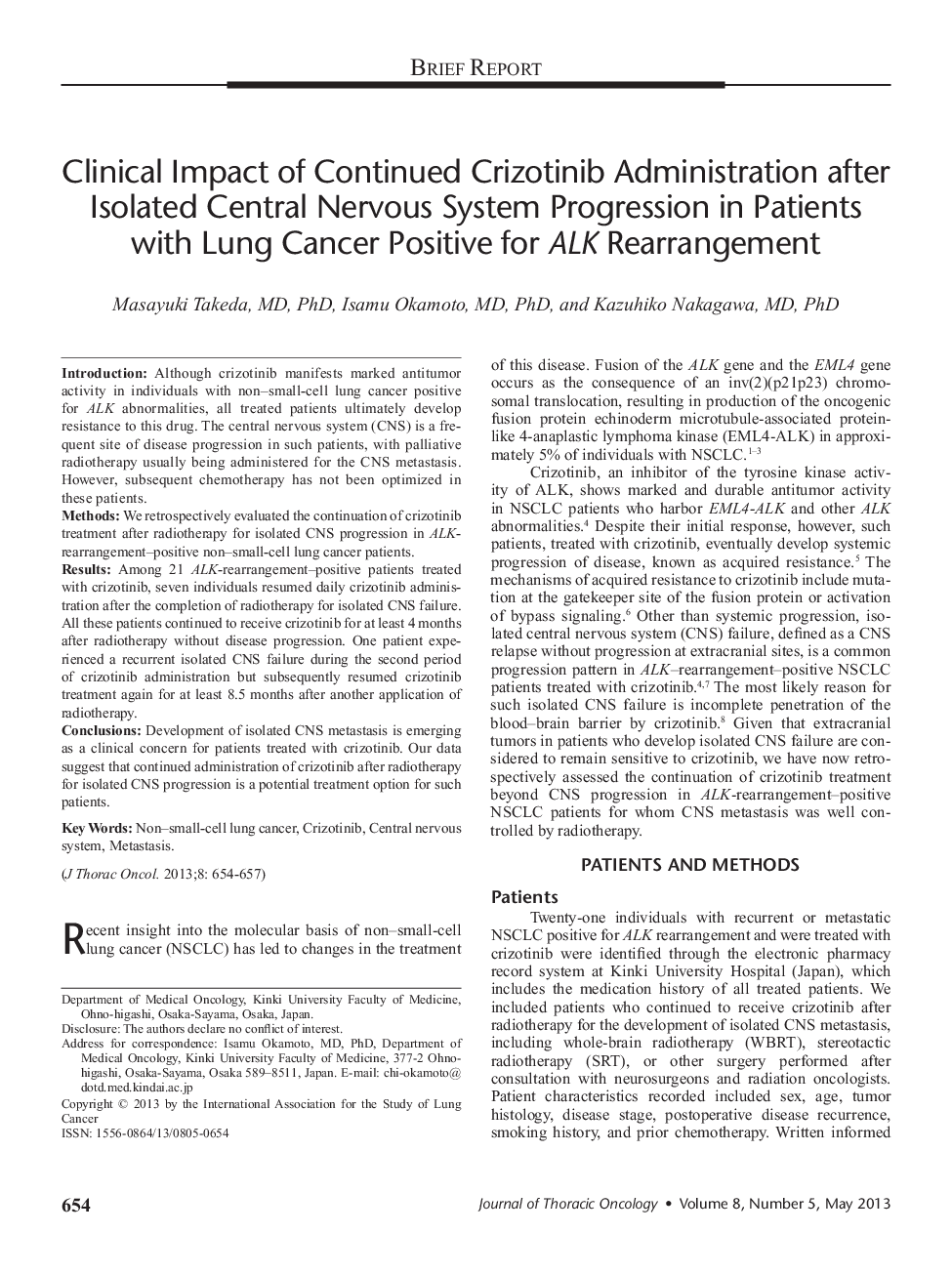| Article ID | Journal | Published Year | Pages | File Type |
|---|---|---|---|---|
| 3990278 | Journal of Thoracic Oncology | 2013 | 4 Pages |
IntroductionAlthough crizotinib manifests marked antitumor activity in individuals with non–small-cell lung cancer positive for ALK abnormalities, all treated patients ultimately develop resistance to this drug. The central nervous system (CNS) is a frequent site of disease progression in such patients, with palliative radiotherapy usually being administered for the CNS metastasis. However, subsequent chemotherapy has not been optimized in these patients.MethodsWe retrospectively evaluated the continuation of crizotinib treatment after radiotherapy for isolated CNS progression in ALK-rearrangement–positive non–small-cell lung cancer patients.ResultsAmong 21 ALK-rearrangement–positive patients treated with crizotinib, seven individuals resumed daily crizotinib administration after the completion of radiotherapy for isolated CNS failure. All these patients continued to receive crizotinib for at least 4 months after radiotherapy without disease progression. One patient experienced a recurrent isolated CNS failure during the second period of crizotinib administration but subsequently resumed crizotinib treatment again for at least 8.5 months after another application of radiotherapy.ConclusionsDevelopment of isolated CNS metastasis is emerging as a clinical concern for patients treated with crizotinib. Our data suggest that continued administration of crizotinib after radiotherapy for isolated CNS progression is a potential treatment option for such patients.
